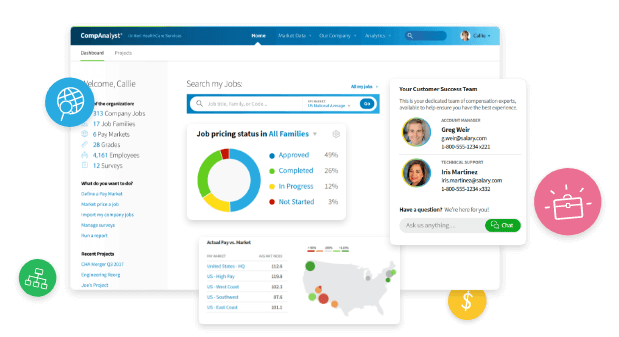How much does a Computer Programmer make in Bristol, UK? The average Computer Programmer salary in Bristol, UK is £29,997 as of March 03, 2021, but the range typically falls between £24,559 and £37,286. Salary ranges can vary widely depending on many important factors, including education, certifications, additional skills, the number of years you have spent in your profession. With more global market data that allows you to price your jobs around the world and compare job salaries across countries and cities on real-time compensation data, Salary.com helps you to determine your exact pay target.
-
Choose Global Country
-
-
View Average Salary for the United Kingdom
-
Choose Similar Job
-
Pick Related Category
-
Find More Jobs in the United Kingdom
Skills to Boost a Computer Programmer Salary
Mastering key skills can significantly increase your earning potential as a Computer Programmer. According to Salary.com's Real-time Job Posting Data, expertise in Troubleshooting can lead to a 7% salary raise, while strong SOP skills boost pay by a 3%. Even Data Processing can result in a 3% salary increase.
| Skills | Salary | Demand | |
|---|---|---|---|
| Skill & Salary | Demand | ||
| £32,097 |
Troubleshooting
£32,097
|
7%
|
|
| £30,897 |
SOP
£30,897
|
3%
|
|
| £30,897 |
Data Processing
£30,897
|
3%
|
|
| £30,597 |
Microsoft Office
£30,597
|
2%
|
|
| £30,597 |
Triage
£30,597
|
2%
|
What does a Computer Programmer do?

Computer Programmer
Tijuana, MX
Adhere to all university policies and procedures.

Computer Programmer
Rzeszow, PL
Document applications carefully and work closely with other WBU programmer(s) so applications can be easily supported by other programmer(s) in the I.

Computer Programmer
Merida, MX
Obtains advice where precedents are unclear or not available.
Are you an HR manager or compensation specialist?
Salary.com's CompAnalyst platform offers:
- Detailed skills and competency reports for specific positions
- Job and employee pricing reports
- Compensation data tools, salary structures, surveys and benchmarks.

 About Bristol, United Kingdom
About Bristol, United Kingdom
 Computer Programmer Pay Difference by Cities
Computer Programmer Pay Difference by Cities
| City, Country | Compared to national average |
|---|---|
| City, Country London, UK |
Compared to national average
|
| City, Country Manchester, UK |
Compared to national average
|
| City, Country Liverpool, UK |
Compared to national average
|
| City, Country Leicester, UK |
Compared to national average
|
| City, Country Birmingham, UK |
Compared to national average
|
| City, Country Brighton and Hove, UK |
Compared to national average
|
Similar Jobs to Computer Programmer in Bristol, UK

| Job Title | Location | Salary Range in GBP |
|---|---|---|
| Job Title Computer Operations Manager | Location Bristol, UK |
|
| Job Title Computer Operations Supervisor | Location Bristol, UK |
|
| Job Title Computer Operator I | Location Bristol, UK |
|
| Job Title Computer Operator II | Location Bristol, UK |
|
| Job Title Computer Operator III | Location Bristol, UK |
|
 Understand the base salary paid range for a Computer Programmer in Bristol, UK
Understand the base salary paid range for a Computer Programmer in Bristol, UK
Average Base Salary
Core compensation




